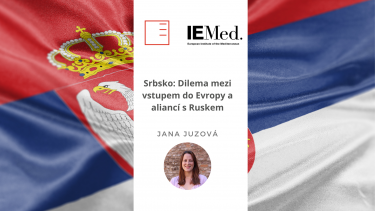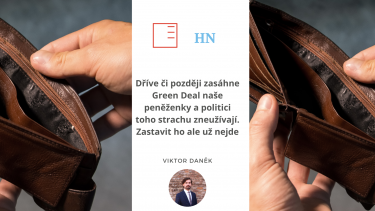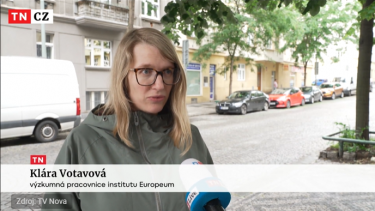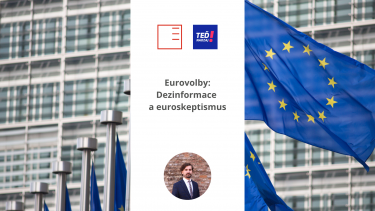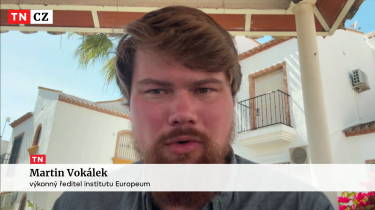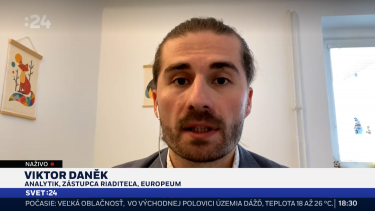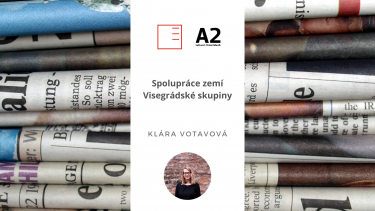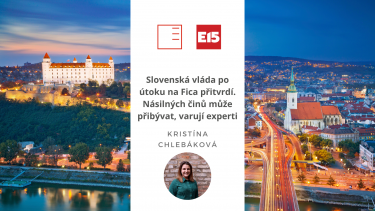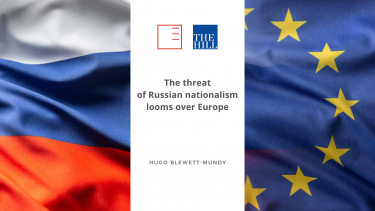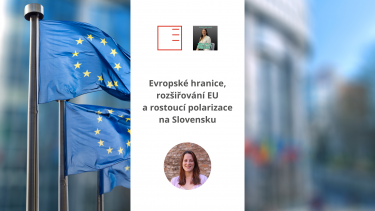IEMED | Serbia: The Dilemma between European Accession and Alliance with Russia
With Ukraine’s defence against Russia heading toward a stalemate in the second half of the year and increased pressure inside the EU to deliver on its promises to provide the country with needed financial and military support, Serbia’s ambiguous relationship with Russia and the West has been brought increasingly into the spotlight in 2023. The Serbian Progressive Party (SNS), ruling since 2012, and President Aleksandar Vučić have been responsible for continued democratic backsliding and have failed to align with the Union’s foreign policy during Serbia’s lengthy EU accession process, pushing the situation closer towards a tipping point in Serbia-EU relations. Senior researcher at EUROPEUM Institute, Jana Juzová, describes this in more detail in her article for the European Institute of the Mediterranean.
Show moreHospodářské noviny | Sooner or later the Green Deal will hit our wallets and politicians are exploiting that fear. But it can't be stopped anymore
The Green Deal is becoming one of the main topics of the upcoming European Parliament elections. Candidate parties emphasize its importance and influence on future politics, with the expected changes affecting various sectors of the economy and the daily lives of citizens. In particular, the amendments to the rules for the ban on the sale of cars with internal combustion engines from 2035 and the upcoming ESG reporting, which could mean a significant administrative burden for medium-sized companies, are being discussed. The transformation towards green technologies brings both opportunities and challenges, and the outcome will depend on the skills and strength of individual negotiators in the coming negotiations. Viktor Daněk, deputy director of EUROPEUM Institute, discussed the topic in the Hospodářské noviny podcast.
Show moreTN.cz | Possible changes in European subsidies
The European Parliament elections are less than two weeks away, and one of the main topics will be the subsidy system. A number of experts are calling for it to be changed, and questions arise as to where the European Union will get the money for subsidies. The transformation of the EU towards green technologies could limit financial resources for structural funds, which would have a negative effect mainly on poorer countries, including the Czech Republic. Economists also point to possible financial problems for the EU after the departure of Great Britain, one of the biggest contributors. Klára Votavová, a researcher at the EUROPEUM Institute, commented on the situation for TV Nova.
Show moreTeď naozaj! | EU elections: Disinformation a euroscepticism
What are the trends in the campaigns for the European elections? What disinformation is circulating in the public space about the European Union? What are the reasons for the strong euroscepticism in the Czech Republic? Viktor Daněk, Deputy Director in the Institute EUROPEUM answered these and other questions in the Czech-Slovak podcast "Teď naozaj!".
Show moreTV Nova | European Union faces drug and doctor shortages
Elections to the European Parliament will take place in less than a month. In addition to security issues, experts warn of the threat of health challenges in the coming years. The European Union will have to deal with a shortage of medicines, an aging population and an increasingly aging medical profession. Martin Vokálek, director of EUROPEUM Institute, commented on these issues for the main evening broadcast on TV Nova.
Show more
RTVS | Does von der Leyen have a clear opponent after the Spitzenkandidaten debate?
Five candidates for the post of European Commission chief clashed in a Europe-wide debate on Thursday. Two factions did not field a candidate. The system of spitzenkandidaten, i.e. the leading candidates of each group for the post of president of the European executive, was created as an effort by MEPs to increase transparency in the filling of the highest posts in the European Union, which clearly includes the president of the Commission. Who will be the one who will form the majority after the elections and does the current head of the Commission, Ursula von der Leyen, have a significant opponent among the other spitzenkandidaten? Viktor Daněk, deputy director of EUROPEUM Institute, analysed the debate for RTVS.
Show moreA2 | Cooperation of the Visegrad Group
Cooperation inside the Visegrad Group depends on the political situation of each country. In recent years, the alliance has drawn attention to itself with its criticism of the southern European states and anti-immigrant rhetoric. Klára Votavová, a researcher at EUROPEUM Institute, wrote her commentary for the biweekly A2.
Show moree15 | Slovak government toughens up after attack on Fico. Violent acts may increase, experts warn
Democracy and the rule of law in Slovakia are in even greater danger after last week's assassination of Prime Minister Robert Fico than before. According to the local media, there are fears that government politicians, led by Fico's interim deputy Robert Kaliňák, will try to take advantage of the current situation to introduce repressive measures against the opposition and the liberal media, which could also affect local business. Project manager of EUROPEUM Institute Kristína Chlebáková comments on the situation for e15.
Show moreThe Hill | The threat of Russian nationalism looms over Europe
The threat of Russian nationalism poses a serious danger to Europe, as emphasized by the EU's High Representative for Foreign Affairs and Security Policy Josep Borrell in his speech in April. Russia is attempting to reassert its influence, particularly through its war against Ukraine, which undermines European security. What impact does the reemergence of Russian nationalism, supported by China, have on European security, and how should the West respond to this geopolitical reality? In his commentary for the American news website The Hill, Hugo Blewett-Mundy, an external collaborator and research fellow at EUROPEUM Institute, addresses this topic.
Show moreTimpul Prezent | European borders, EU enlargement and growing polarization in Slovakia
What are the borders of Europe and how do they coincide with the borders of the European Union? What are the prospects for EU enlargement towards the Western Balkans and the former Soviet states? These questions are addressed by Jana Juzová, senior researcher at EUROPEUM Institute for the Timpul Prezent podcast. She also discussed the consequences of the recent attack on Slovak Prime Minister Robert Fico and highlighted the growing polarization of Slovak society and the potential threat to media independence.
Show moreStaroměstské náměstí 4/1
Prague 1 - Staré Město
110 00
tel.: +420 212 246 552
email: europeum@europeum.org
https://www.europeum.org
